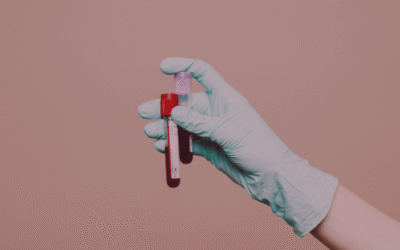
I realised recently that I never really finished off my Gluten series, so today I am taking another look at this wonderful topic of Gluten and if its doing your health any good.
I have to say it has mainly been inspired by my ongoing reading of the The Grain Brain by Dr Perlmutter who looks at how our consumption of grains impacts our brains, and also as I have been gathering recipes and resources for my Flourish coaching course which started this week and encourage gluten free feasting! (If you missed your chance the next one will start in January so register an interest here).
You will know from my previous vBlogs that I am not glutens biggest fan. This is probably obvious from the fact that I NEVER share any recipes that contain gluten and run free challenges like my G-Free challenge to support you in creating gluten free eating habits. So needless to say I have a very clear bias on the whole subject:) But I did want to show that this is not just my personal opinion and down to my own bodies preferences but that other experts in their field are also getting on the naturally gluten free bad wagon.
But it worth noting that all this information has to fit into the context of your own health and body. Listening to you own body is the most important thing, but its also good to be aware of what experts in there field say, so this is not to pressurise you into being gluten free but to help you become more aware of you own bodies needs and hopefully to encourage you to enjoy a greater variety of food in your life:) So lets take a look
Why Gluten is Harmful?
It’s addictive and our bodies react to it it like it would do to heroin or morphine!? Dr Natasha Campbell Mcbride, medical doctor and writer of the GAPS diet say when talking about patients who are ‘eligible’ for the GAPS diet
‘..these proteins (gluten proteins) do not get digested properly and turn into substances with similar chemicals structures to opiates, such as morphine and heroin. There has been quite a substantial amount of research done in this area …were (gluten) detected in the urine of patients with schizophrenia, autism, ADHD, post partum psychosis, epilepsy, downs syndrome, depression and some auto immune problems like rheumatoid arthritis.’
Bread causing a bodily reaction similar to morphine??!! Surely not. But from my little bit of research of experts in their field it seem that the process grains currently so prevalent in our diet are addictive. William Davis, author of Wheat Belly: Lose the Wheat, Lose the Weight, and Find Your Path Back To Health, says
“So this is your brain on wheat: Digestion yields morphine-like compounds that bind to the brain’s opiate receptors. It induces a form of reward, a mild euphoria. When the effect is blocked or no exorphin-yielding foods are consumed, some people experience a distinctly unpleasant withdrawal.”
So gluten containing foods can be addictive and leave you wanting more – no wonder we are a nation of bread lovers! Cause of brain disease?? It also seems that it is detrimental for our brain health. Dr Perlmutter explains that “The origin of brain disease is primarily dietary,”. This doctors stand point and his book The Grain Brain is a great look into years of research. He watched his genius doctor father die slowly of Alzheimer’s and this sparked his researched into brain health and why diseases like dementia and other are so prevalent in our society. (I haven’t actually finished the book but so far so good!) He talked about that many of you will have no outward sign of gluten sensitivity (bad bowels, skin, infertility, low energy, mental healthy problems etc) but he suggests that most of us are gluten sensitive but it is hidden and only becomes manifest in later year through disease:
‘It goes to show that we may all be sensitive to gluten from a neurological standpoint. We just don’t know it yet because there are no outward signs or clues to a problem happening deep within the quiet confines of our nervous system and brain. Remember that at the heart of virtually every disorder and disease is inflammation. When we introduce anything to the body that triggers an inflammatory response, we set ourselves up for taking on much greater risk for a medley of health challenges…’ Page 61 The Grain Brain
Read the book for more information and to get a more in depth look at the impact of grains and gluten on our neurological health.
It can contribute to Auto Immune Thyroid Diseases AITD (and other auto immune issues)
I will let Chris Kesser explain further when talking especially about AITD and their connection to gluten sensitivity:
What explains the connection? It’s a case of mistaken identity. The molecular structure of gliadin, the protein portion of gluten, closely resembles that of the thyroid gland. When gliadin breaches the protective barrier of the gut, and enters the bloodstream, the immune system tags it for destruction. These antibodies to gliadin also cause the body to attack thyroid tissue. This means if you have AITD and you eat foods containing gluten, your immune system will attack your thyroid.
Now this does not say it is the cause of these disease but if definitely doesn’t help! There is also a lot more research and talk out there that gluten will contribute negatively to ALL auto immune diseases, meaning that the consistent eating of gluten causes the body to attack itself. It can irritate an already reactive immune system and make things worse or some people would say it is the potential root cause of certain auto immune diseases.
It can damage your gut
Now if you have been reading this blog for a while you will know I am all about gut health. When we have a healthy gut and digestion we have a healthy body and as it has been alluded too in the above sections gluten can cause inflammation in the body. Due to poor gut health and the distortion of our modern foods, food will get into our blood stream and cause an immune reaction that way.
“In the case of gluten, its sticky attribute interferes with the breakdown and absorptions of nutrients. As you can imagine, poorly digested food leads to a pasty residue in your gut, which alerts the immune system to leap into action, eventually resulting in an assault on the lining of the small intestine.” Dr Perlmutter
Also one of the main problems with gluten filled foods is that they (although not exclusively) contain disaccharides and polysaccharides – basically form of sugar that are can be harmful to the body is not digested or broken down properly. Weston A Price’s blog explains:
“Disaccharides include lactose (milk sugar) and sucrose. Many people do not produce the enzymes needed to break down disaccharides, which then remain undigested in the colon and become putrefied by the microorganisms that live there. Thus, it’s easy to understand why reducing disaccharides is imperative for those with digestive problems; the more disaccharides ingested, the more putrefaction in the colon–leading to digestive distress.” Weston A Price Source
If you are struggling with any sort of digestive issue then removing gluten will definitely help . This is why healing diets like the Gut and Psychology Syndrome (GAPS) diet, the Specific Carbohydrate Diet (SCD) and Auto Immune Paleo (AIP) Protocol all eliminate grains and gluten in order to allow the gut and body to heal. Now I have not found much research or studies that would clearly show that gluten filled, processed foods are what causes gut damages but it makes sense to me that if it removing it dramatically helps disease then it presence could have caused it. There is also a lot of research out there more specifically about the connection of gluten to behavioural issues like autism and ADHD (I have seen first had the impact a gluten free diet has on these conditions but just get the GAPS book if this topic is of special interest to you), acne, fertility, depression and much more.
But I think that is enough science chat for now – my brain feels pretty full so I imagine yours does too!!
Now as always my aim is NEVER generate fear and sometimes yes these books and experts can be trying to do just that but my aim is to make your aware of the realities of the potential impact that the food you’re eating could be having on your body. You were created to be well and energised and something as simple as eating gluten could be getting in the way! The gluten most of us are consuming these days is not natural, has been heavily processed and often genetically modified and won’t do us any good but traditionally processed gluten can be much better. Plus so often I find with clients and people who I talk to that going gluten free is really only a matter of changing habits and often the key to weight loss.
But equally it really important to listen to your own body.
Maybe you feel like you thrive of gluten foods, are full of energy and have no problems with it, then brilliant maybe just aim for greater variety in you food. I don’t necessary think every single person need to go gluten free because our bodies are so different but I do think we have an unhealthy emphasis on processed gluten containing foods that can be harmful to health.
What Now? Three top Gluten Free Tips!
So if you want to reduce or remove gluten from your diet then here are my top 3 tips:
1 Go slow. Start with one meal a day, for example for a few week focus on having gluten free breakfast and once you have found food you like and gotten into the swing of it move onto to eating gluten free lunches, then after once that has become a habit and simple move onto dinner, then snacks … get the picture. SLow and steady win the race when it comes to changing habits of a lifetime.
2 Read this post about 3 foods to heal your body when you eat gluten free.
3 Be planned. When you are changing habits it hard to know what to eat which is why planning is so key. I love using pinterest to create board of loads of tasty recipes so that I always have tasty options. All the recipes I ever post on this blog to pin on my pinboard are always gluten free.
Further Reading
Why ‘gluten free foods’ are not the answer
The difference between gluten free and wheat free
Why gluten is not a food group by Wellness Mama
How to restore digestive health – Weston A Price
What’s behind ‘Grain Brain’: Are gluten and carbs wrecking our brains and our health?
The Gluten-Thyroid Connection by Chris Kesser





0 Comments